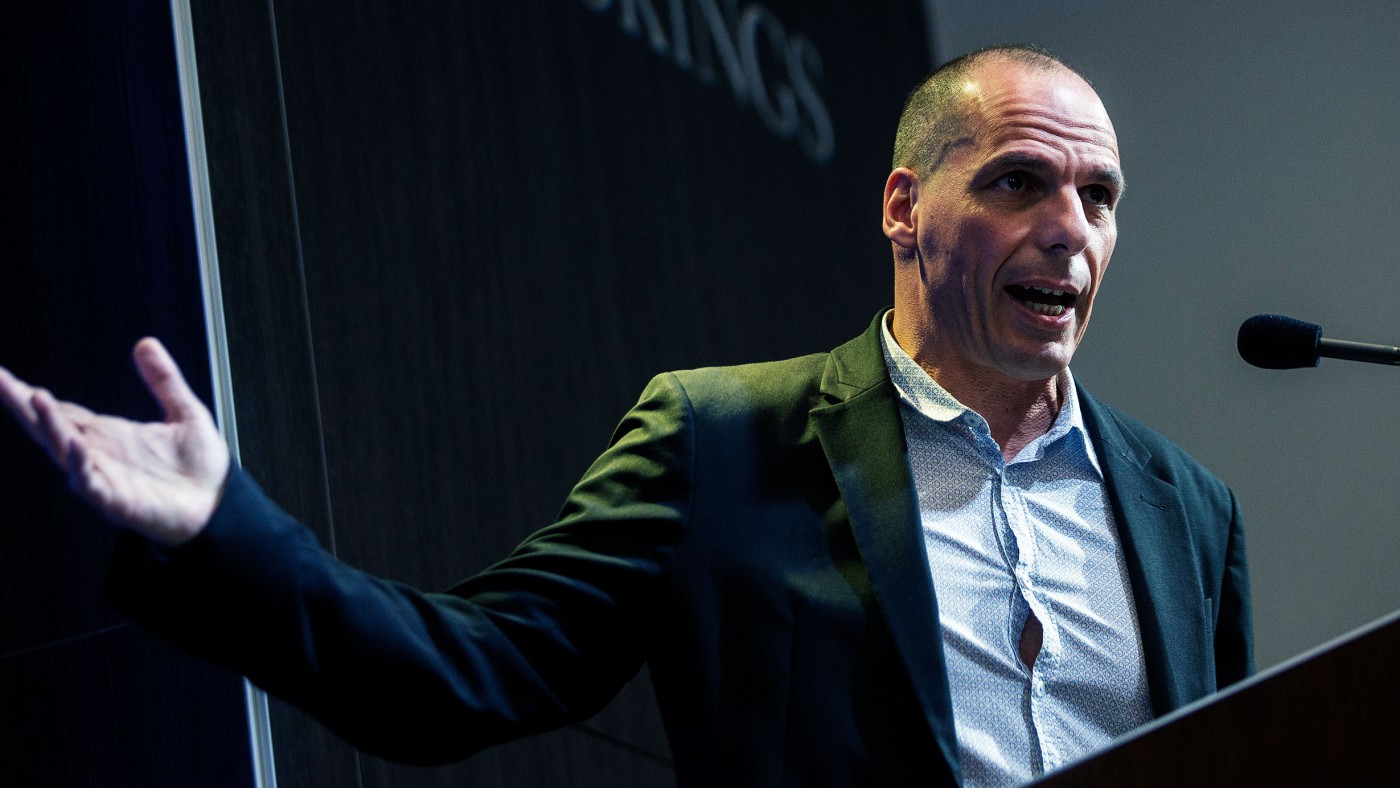This is the weekly newsletter from Iain Martin, editor of CapX. To receive it by email every Friday, along with a short daily email of our top five stories, please subscribe here.
The “rock star” Greek finance minister continued his world tour this week, with a visit to Washington. He got twelve minutes with President Obama and told a think tank in the US capital that Greece would compromise but not be compromised, whatever that means.
Syriza’s Yanis Varoufakis should enjoy the travel and the attention while he can, as the Greek crisis is coming to a head and the contradictions in his anti-austerity policies are being tested in a manner that could end up costing him his job. There is no sign of an agreement ahead of next week’s meeting, on the 24th, of Eurozone finance ministers. After that, Greece owes the IMF a payment of almost €1 billion. The country is running out of money.
None of this is a surprise to those who warned that the single currency would result in tragedy, but the impact on many Greeks as this experiment unwinds is horrendous and the risks of a new backlash are considerable. Unemployment was still running at 25.7% in January, with youth unemployment at 52.4%. There is doubt over whether the government will be able to pay pensioners next month. Greece – which still, bafflingly wants to cling to the Euro – may soon be left with no choice and have to leave if Germany will not pay up.
The messy denouement will be a dangerous moment politically. European elites are already not in good odour outside Germany, and if plucky Greece descends into chaos the anti-austerity brigade in other countries will say that German intransigence, “neo-liberalism” and big finance have produced a disaster.
This is fertile territory for populists, of course. While there are some signs that left-wing populism is on the wane – as in Spain, where Podemos has dipped in the polls recently – in Britain an “end austerity” mantra is being chanted by the left-wing Nationalist parties and Greens that hope to hold the balance of power after next month’s election. In that contest, the Scottish National Party appears to be on track to wipe out Labour, and the SNP agenda, besides separatism, is more borrowing and a bigger State.
To counter these forces, those who are pro-market, and for limited government and enterprise, need to be much more explicit about the calamitous impact of simplistic populist policies that sound tempting to many worried voters. Capitalists, in other words, need to stick up for popular capitalism and explain that the aim is not to entrench an elite. The aim is to increase prosperity and widen opportunity for the many.
Elsewhere on CapX this week, we had coverage of the UK general election contest and the troubling absence of any discussion about wealth creation. Gerald Warner took apart the madness of full fiscal autonomy, the policy favoured by the SNP. We highlighted Arthur Brooks on trade being the route out of poverty. Andrew Lilico analysed Greece and Beatrice Faleri lamented the state of Italy’s much vaunted expo in Milan.


